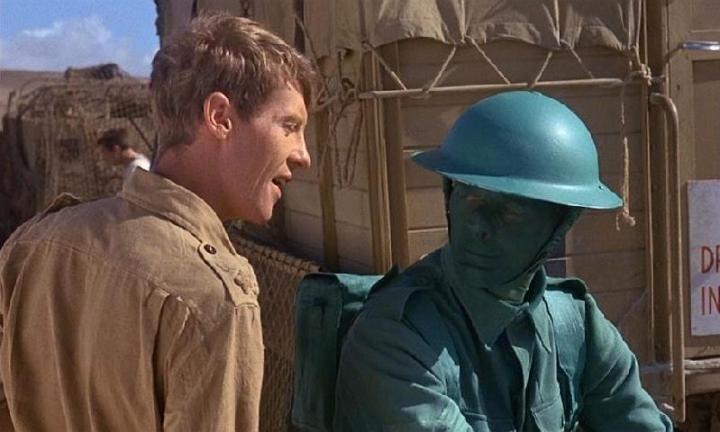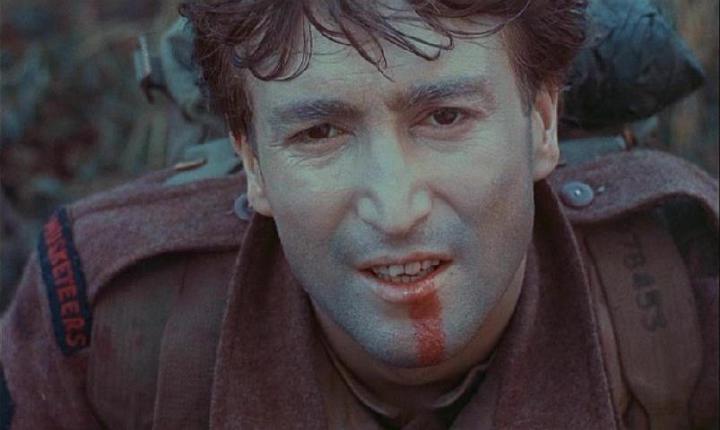Despite a straightforward, even simple plot—Goodbody (Michael Crawford), an inexperienced officer in North Africa during WWII, is instructed to lead his troop ahead of the main body of troops to build a cricket pitch for when the army gets there—the approach of the film was, to put it mildly, unorthodox. Viewers were introduced to the characters in England’s green and pleasant land at a singular cricket game where no less a personage than Adolph Hitler is—none too honestly—working the scoreboard. Goodbody tries to tell his story, despite intrusions by other soldiers (including Gripweed, who shows up to ask if he can rub Goodbody’s cricket ball: “Can I rub your ball, sir? It gives me great pleasure”), who inject how they really feel about this well-loved officer.
It only gets stranger as it mocks each and every aspect of war and the military. One of the most perplexing things for some viewers was Lester’s concept that as characters were killed, they’d turn into monochromatically colored “specters,” who followed the survivors on their ridiculous mission. In part, this was to make it clear that these were actors and that no one really dies in films. (Lester once claimed to have bamboozled the British Army, which was cooperating with the film, into believing this was a test for the Technicolor cameras!)
Nothing was sacred. Jack MacGowran appeared as a soldier trying to get out of the army on a mental discharge, but his more bizarre outbursts are dismissed as him “working his ticket,” while the moment he starts quoting Churchill’s speeches he’s judged as “mad.” One soldier, Clapper (Roy Kinnear), has a wife (Fanny Carby) who sends him letters tormenting him with stories of her multiple infidelities (all of which she makes up by observing the actions of a promiscuous friend). U.S. General Omar Bradley (Alexander Knox) is depicted as a senile old fool recounting history as if appearing in a documentary. Military leaders swap “famous battle” bubble-gum cards with each other, and a soldier who has his legs blown off is advised to “stick ‘em under the cold tap, love.” Even for a Vietnam-era anti-war film, this was extreme, harsh material. It still has an edge most films would shy away from. It’s brilliant, bitter, defiant and angry. And on another level, the film has taken on a disturbingly eerie quality, thanks to Lennon’s death scene where he looks directly at the camera as he dies, saying, “I knew this’d happen. You knew it’d happen, didn’t you?”
Classic World Cinema by Courtyard Gallery will present How I Won the War Friday, Feb. 13, at 8 p.m. at Phil Mechanic Studios, 109 Roberts St., River Arts District (upstairs in the Railroad Library). Info: 273-3332, www.ashevillecourtyard.com







Before you comment
The comments section is here to provide a platform for civil dialogue on the issues we face together as a local community. Xpress is committed to offering this platform for all voices, but when the tone of the discussion gets nasty or strays off topic, we believe many people choose not to participate. Xpress editors are determined to moderate comments to ensure a constructive interchange is maintained. All comments judged not to be in keeping with the spirit of civil discourse will be removed and repeat violators will be banned. See here for our terms of service. Thank you for being part of this effort to promote respectful discussion.